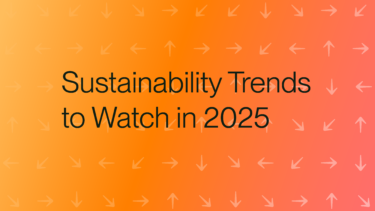
Explore our social impact solutions
Table of contents
- What is Social Value?
- What has changed?
- Who is affected?
- What do organisations need to do now?
- Anthesis support
Share this article
Back in September 2020, the UK Government launched a Public Procurement Notice (PPN 06/20), officially titled ‘Taking Account of Social Value in the Award of Central Government Contracts’, which aimed at incorporating social value considerations into UK Government contracts. The Notice was designed to highlight the social benefits that can be achieved through public procurement and create a standardised and complete approach to assessing and incorporating social value in public procurement.
What is social value?
Social value can be defined as the positive impact that activities have on people’s lives by improving the welfare and well-being of individuals, communities, and society.
For organisations, this means the overall value that the organisation provides to society, such as offering opportunities for disadvantaged groups, training for local communities or reducing their impact on the environment.
Social value is also used as a tool for the evaluation of progress against the 17 Sustainable Development Goals (SDGs) of the United Nations.
FIND OUT MORE ABOUT THE SUSTAINABLE DEVELOPMENT GOALS
What has changed?
Previously, there has been a lack of a consistent approach to the way social value is measured through public procurement.
One of the key changes brought in by the PPN is that it introduces the requirement that social value should be ‘explicitly evaluated’ when awarding in-scope public procurement contracts. This builds upon the Social Value Act (2012), which requires public sector commissioners to ‘consider’ how they could improve the economic, environmental, and social wellbeing of their population through their procurement activities.
This PPN sits alongside other recent changes to UK public procurement, such as PPN 06/21 focussed on carbon reduction.
Who is affected by PPN 06/20?
PPN 06/20 states that “Social value should be explicitly evaluated in all central government procurement, where the requirements are related and proportionate to the subject-matter of the contract”.
This applies to procurements covered by the Public Contracts Regulations 2015 and contracts controlled by:
- Central Government Departments
- Their Executive Agencies and Non-Departmental Public Bodies, such as HMRC, CPS, and DVLA
The Social Value Model defines five key priority themes:
- COVID-19 recovery
- Tackling economic inequality
- Fighting climate change
- Equal opportunity
- Wellbeing
What do organisations need to do now?
Organisations are now required to evaluate social value by mapping their activities against the ‘Social Value Model’. The prioritisation of themes varies depending upon the sector, industry, and contract.
The Social Value Model defines five key priority themes:
- COVID-19 recovery – Helping local communities manage and recover from the impact of COVID-19 through employment opportunities, training and improving workplace conditions
- Tackling economic inequality, including creating new businesses, new jobs and new skills and increasing supply chain resilience and capacity
- Fighting climate change through effective stewardship of the environment, such as net zero emission targets or reducing plastic waste
- Driving equal opportunity, which includes tackling workforce inequality, such as implementing better monitoring of modern slavery in production and supply chains and reducing the disability employment gap
- Wellbeing – Improving health and wellbeing and community integration
Organisations are required to provide qualitative responses against the relevant sections of the model. All bidders must showcase what they have achieved against the social value criteria and how they will deliver the requirements going forward. Responses will be assessed and scored based on the quality of social value and form part of the decision on the contract award.
For central Government contracts, all five priorities will be assessed. However, commercial teams can choose to select the themes that are most relevant to the contract. For all contracts, the social value must have a minimum of 10% weighting in the overall assessment of the project. This levels the playing field for smaller bidders as they aren’t discounted based on volumes and price alone.
The model allows for the evaluation of progress against the UN Sustainable Development Goals. It also encompasses the Modern Slavery Act 2015 under the Procurement Policy Note of Tackling Modern Slavery in Government Supply Chains Action Note PPN 05/19.
Creating Positive Supply Chains for Nespresso
Anthesis worked with Nespresso to drive positive impact in the livelihoods of farmers and their communities. The specific strategic initiatives include:
- Working with governments and the third sector to reintroduce coffee farming in parts of the world where it has collapsed owing to conflict or low levels of economic development
- Helping to facilitate intergenerational succession on coffee farms by establishing the launch of the first-ever retirement savings plan for smallholder coffee farmers in Colombia
- Developing programmes that reduce the risks to smallholders such as climate-related weather incidents that can damage harvests

How Anthesis can help
Anthesis can support you to comply with this requirement by helping you to formulate a social impact strategy or adapt your existing strategy to meet the social value procurement framework requirements and evaluate how to embed it into the procurement process.
Anthesis has extensive experience of working with brands to improve Environmental, Social, and Governance to achieve sustainable performance. We support brands to diagnose and incorporate sustainable procurement criteria into supplier onboarding, focusing on tackling inequality, the well-being of workers, community, human rights, and modern slavery. This includes areas such as living wage, employment practices, health and safety and working conditions, particularly focussing on changes due to COVID-19, and providing recommendations to the company.
We support organisations by providing insightful diagnostics of business and sustainability issues. Our methods combine primary research and data collection, big data analytics, scenario modelling, and multi-stakeholder qualitative research. Rooted in robust evidence and analytics, we work with clients to identify the gaps and provide recommendations on each of the requirements under the social value guidance. We help to identify and design social impact strategies and solutions that unlock sustainable performance.
Explore our social impact solutions
We are the world’s leading purpose driven, digitally enabled, science-based activator. And always welcome inquiries and partnerships to drive positive change together.



